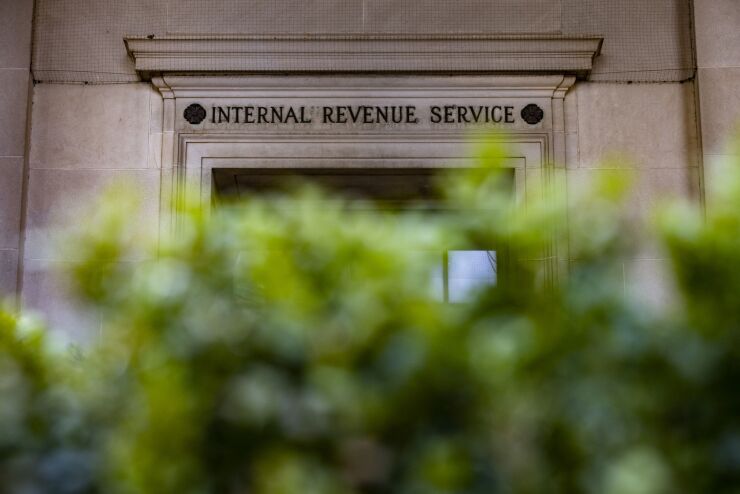Nobody likes a surprise letter from the IRS. But for financial advisors with clients who get audited, the unpleasantness presents an opportunity.
By getting up to speed on how the dreaded process works, wealth planners can unearth a client’s honest mistakes, questionable moves or unrealistic assumptions about investment returns. At a minimum, hand holding can soothe a panicked customer and strengthen trust that a nest egg is well nurtured. On a bigger front, it can sharpen the picture of a client’s hopes and expectations about money and help fine-tune spending and retirement goals.
“A lot of times, financial advisors are silent about tax issues,” said Dan Herron, the founder of Elemental Wealth Advisors, a fee-only firm in San Luis Obispo, California. Herron, who is both a certified financial planner and an accountant, added that advisors with clients under the IRS microscope “should be proactive — it’s good for the relationship.”
The jolt that taxpayers feel upon learning they’re on the radar of the nation’s tax collector has an analog: the angst most independent advisors experience when confronting technical tax issues. Except for the rare few who have a staff accountant, most planners rely on the client to outsource it all.
The CFP Board, which oversees the financial planning profession, declined to say how many of its nearly 92,000 certified financial planners are also accountants, a designation regarded as more technically rigorous. Sheryl Rowling, an accountant and financial planner who is an editorial director at Morningstar, said the number of dual-designation holders was “very few.” Under 3% of accountants were also personal financial specialists, a rival planning credential, in 2018, according to The American Institute of Certified Public Accountants, the accounting industry’s trade group.
“The problem is that regular, non-CPA advisors don’t really know how to answer tax questions,” Rowling said. But at wealth management practices with staff accountants, “clients place a higher value on your services because of tax planning,” she
The real unreal
Advisors may pay less attention to IRS tangles because the risks of being audited have been
But the small likelihood masks a secret: so-called “
While the chances of scrutiny are relatively low, these issues can put a wealthy taxpayer on the agency’s radar.
When the mailings are counted, the audit rate over 12 months through September 2016 for those making $1 million to $5 million rose to 21.1% from an official 4.2%,
On the investment side, tax planning is a growing component of “holistic” financial management, which addresses everything from paying for college and home buying to retirement and legacy planning. For advisors, it usually focuses upon strategies to scrape out extra profits, like tax-loss harvesting, not on the nuts and bolts of grinding processes like an
“I've seen clients think this is just going to go away,” said Marianela Collado, the CEO and senior wealth advisor at Tobias Financial Advisors, a fee-only advisory firm in Plantation, Florida. “News flash: It doesn’t!”
Audit flavors
The most benign, and frequent, form of scrutiny is a correspondence audit — an “unreal audit” — which announces itself in the mail via a computer-generated letter. One typical missive, a
“Unless you have purposely done something that you are trying to hide,” said Kevin Williams, the founder of Full Life Financial Planning, a small wealth manager in Pembroke, Massachusetts, “the IRS is neither out to get you nor as intimidating as many make it out to be.”
Next level up is the
The dreaded
For serious situations, a client surely has an outside accountant and, likely, a tax lawyer involved. But while independent advisors who aren’t accountants or lawyers can’t represent a client before the IRS, there’s plenty they can do for one who gets a correspondence letter.
If the notice concerns capital gains or losses, or dividends or interest, the advisor should be able to supply the client’s own accountant with detailed records. Likewise, if a client prepared his own return and it covered planning the advisor did, the advisor can give the customer documents that reconcile the numbers.

“Bank statements, anything where they have the transaction data — that’s where they can provide the value to the client,” Herron said. Advisors, he added, should also reach out directly to the client’s accountant to say, “anything you need, let me know.”
It’s not always your fault
Rowling said that the IRS is usually looking at a specific area. The agency may be questioning a taxpayer’s basis, or original purchase price, for stock sold in a closely held company, or attempting to reconcile a Form 1099 that it received with what figures the client reported — or didn’t report — on his return.
One perennial tripping point: retirement accounts. IRS rules state that money pulled out of an IRA or 401(k) must be
In a 60-day period that begins in one year and ends in the next, clients receive a document from their brokerage or plan custodian showing cash coming out of their original IRA. So does the IRS, and it trips the system. The agency is unaware that the funds have been replenished, because it’s a new year. By contrast, if everything had been done in the same calendar year, no Form 1099-R would have been issued — and no scary IRS letter sent.
“I would hope that if the advisor is not a CPA, the client would have a CPA,” Rowling said. “It’s always best to have a CPA take care of it.”







